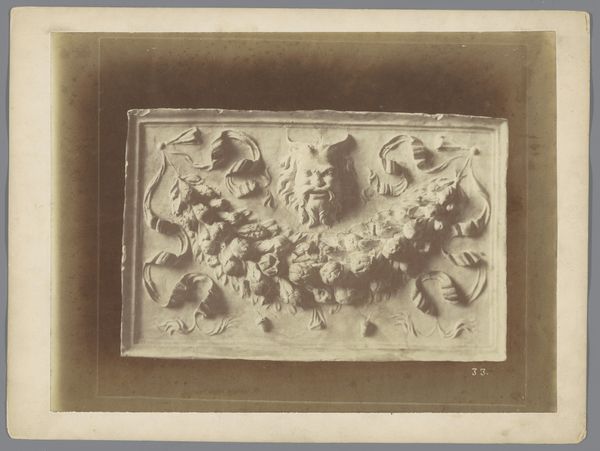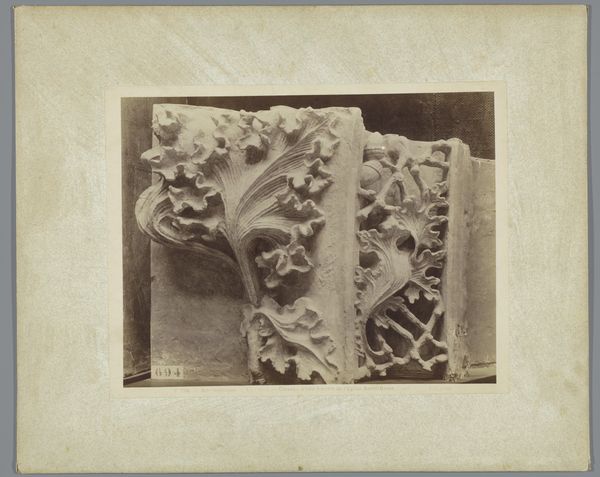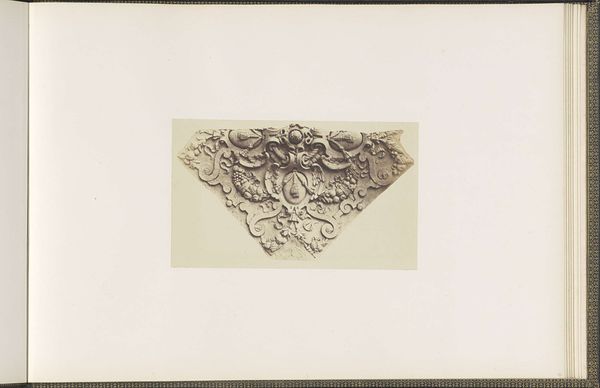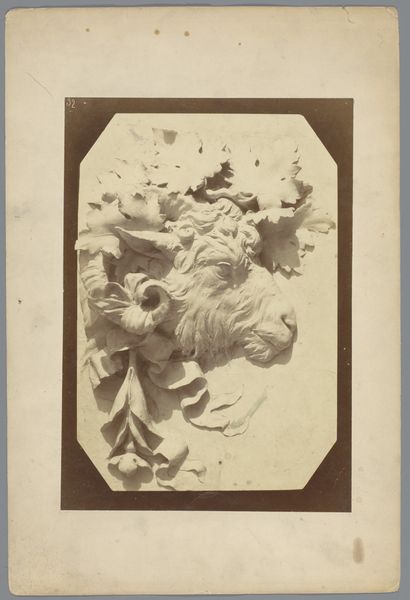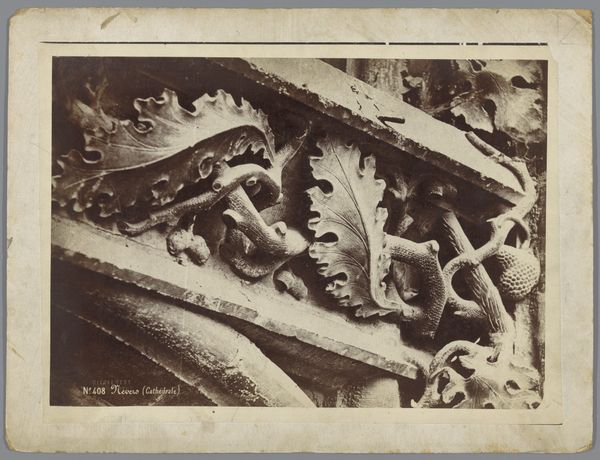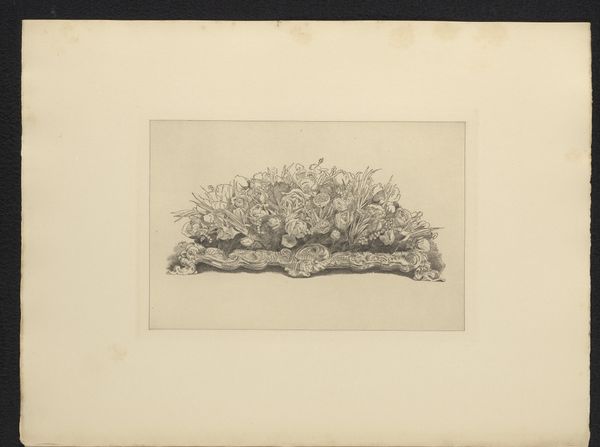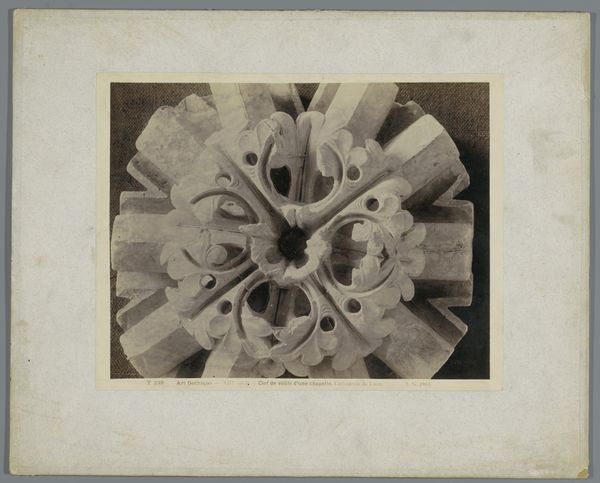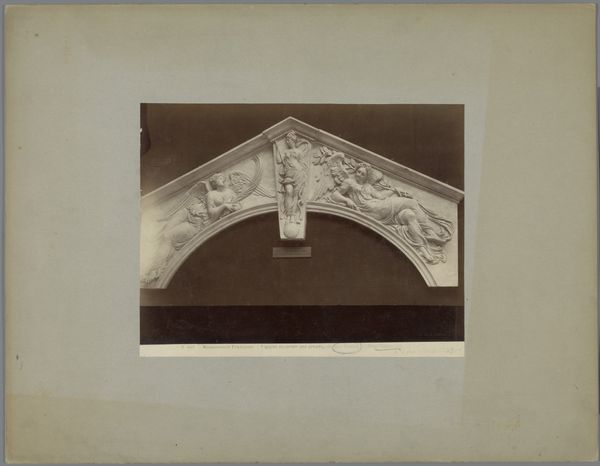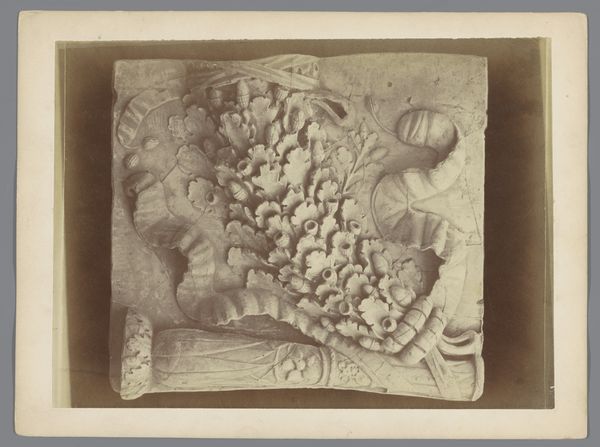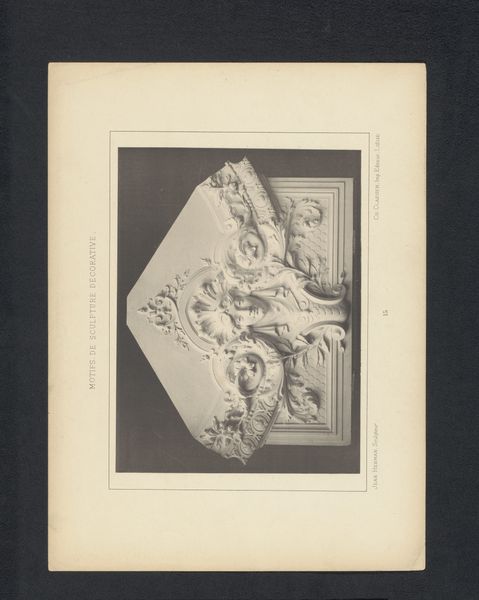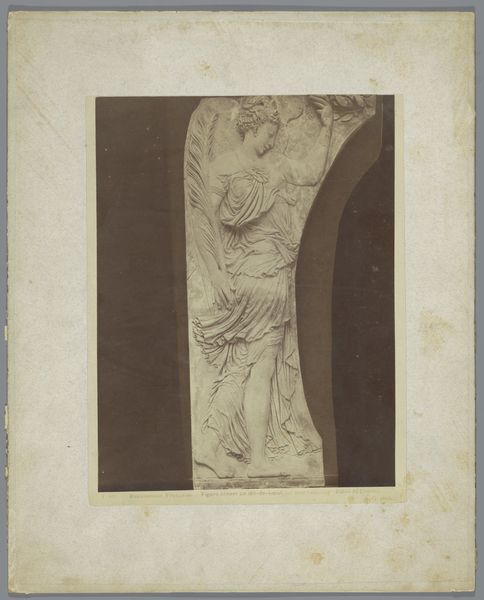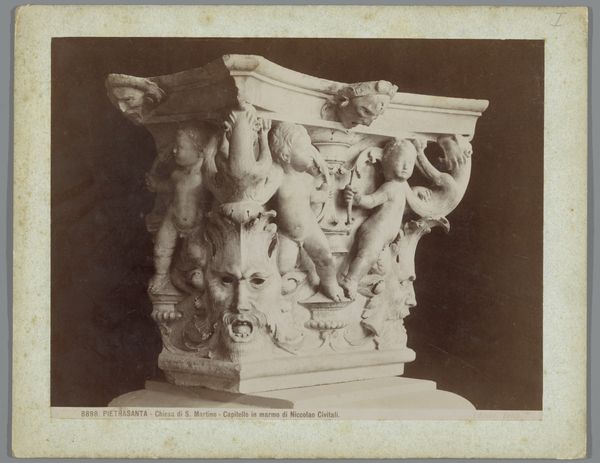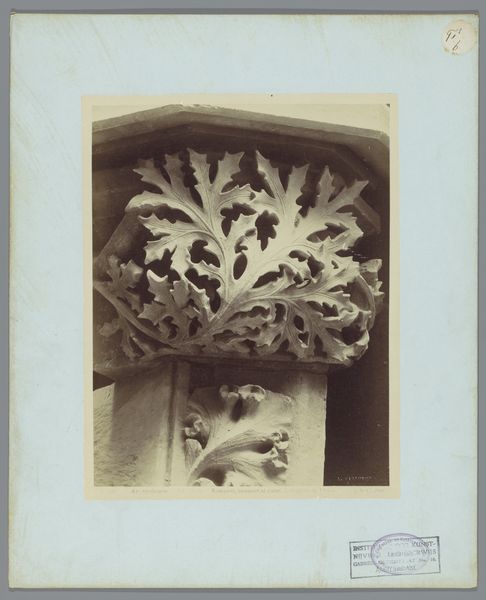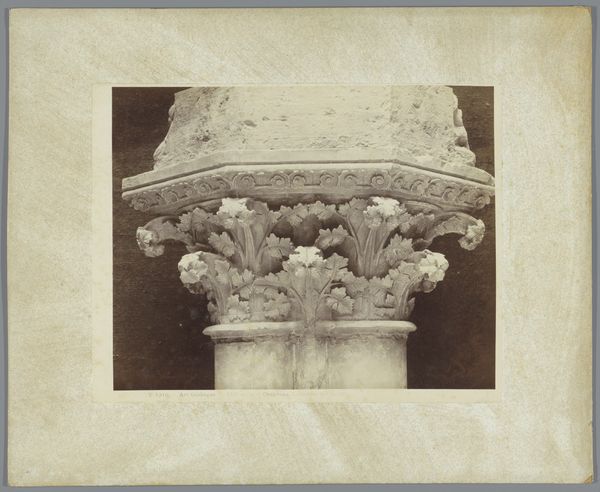
Afgietsel van een reliëf van de Basilique Saint-Urbain te Troyes c. 1875 - 1900
0:00
0:00
adolphegiraudon
Rijksmuseum
carving, print, relief, photography, sculpture, gelatin-silver-print
#
still-life-photography
#
carving
# print
#
relief
#
form
#
photography
#
geometric
#
ancient-mediterranean
#
sculpture
#
gelatin-silver-print
Dimensions: height 204 mm, width 261 mm
Copyright: Rijks Museum: Open Domain
Curator: Immediately, I’m struck by how the artist uses the interplay of light and shadow to create such depth. Editor: What you are seeing is an early gelatin silver print made circa 1875-1900 by Adolphe Giraudon. The work is titled "Afgietsel van een reliëf van de Basilique Saint-Urbain te Troyes"—A cast of a relief from the Basilica of Saint-Urbain in Troyes, France. Today, the photograph is preserved in the Rijksmuseum. Curator: Given its age, it has a crisp quality; look how the photographer captures the textural complexity of the botanical carvings. What do you think of the subject matter? Editor: Gothic ornamentation carries the weight of religious authority. But photographed like this, out of situ, we can view its relationship with other architectural sculptures from the period, interrogating power through the lens of artistic style. Curator: That is an interesting consideration. Focusing just on the image for a moment, observe how the eye travels across the organic curves of the acanthus leaves. They seem to both emerge and recede in the sepia tones. Do you think it captures a sense of timelessness? Editor: Photography’s democratizing power here takes on new meaning: sacred spaces, formerly accessible to a select few, could be seen by broader audiences thanks to artists such as Giraudon. Curator: And Giraudon presents the fragment not as a mere artifact, but almost as a study in pure form. It detaches it from its initial function. Editor: Ultimately, Giraudon provides scholars with the unique ability to study and compare historical artifacts across contexts and timelines, broadening art history in ways once unimaginable. Curator: I agree. This photograph, seemingly straightforward, is ripe with details that encourage both formal appreciation and wider critical inquiry.
Comments
No comments
Be the first to comment and join the conversation on the ultimate creative platform.
